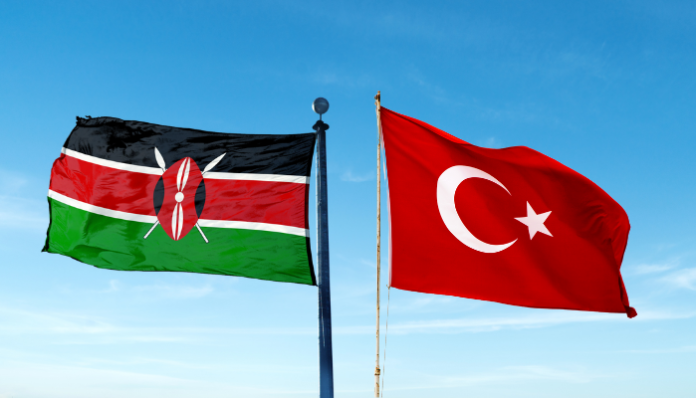An alliance of 20 human rights, legal advocacy and social justice organizations has condemned the Kenyan government after it admitted that it deported four UN-protected Turkish nationals without due process, in a statement published by Amnesty International Kenya.
International refugee law permits the return of refugees only if they pose a threat to national security or, after due process, are found guilty of a crime that endangers public safety. However, the organizations highlighted that the Kenyan government has not provided evidence that the four individuals met these criteria.
The statement concerns four people — Mustafa Genç, Öztürk Uzun, Alparslan Taşçı and Hüseyin Yeşilsu — who had been residing in Kenya as refugees under the protection of the United Nations’ refugee agency, UNHCR. They were abducted by armed unknown individuals on Friday.
The organizations emphasized that the principle of non-refoulement, which protects asylum-seekers and refugees from any measure that could lead to their removal to a place where their life or freedom would be threatened, is a key tenet of refugee protection enshrined in international agreements such as the 1951 United Nations Refugee Convention, its 1967 Protocol, the 1969 OAU Convention and Kenya’s 2021 Refugee Law.
“These obligations cannot be traded for commercial, diplomatic, or trade interests without violating both national and international law,” the group said.
The statement also criticized the decision to forcibly return the individuals without exploring alternative options, such as resettlement in a third country, saying, “Rather than returning asylum seekers to governments they fled from, a third country for safe resettlement could have been found.”
The rights groups argued that this action endangers the lives of the four individuals and damages Kenya’s reputation as a haven for refugees. It also casts a shadow over Kenya’s recent membership on the United Nations Human Rights Council and raises concerns ahead of the upcoming United Nations Universal Periodic Review process.
The statement was endorsed by a coalition of organizations advocating for human rights-compliant policing, including the Independent Medico-Legal Unit (IMLU), the Defenders Coalition, the Social Justice Centres Working Group, Amnesty International Kenya and the Kenya Human Rights Commission.
The abductees were reportedly asylum-seekers registered with the Office of the United Nations High Commissioner for Refugees (UNHCR). They had sought protection from being forcibly returned to Turkey, where they claimed to face threats due to their links to the faith-based Gülen movement.
Turkish President Recep Tayyip Erdoğan has been targeting followers of the Gülen movement, led by the late Turkish Muslim cleric Fethullah Gülen, since the corruption investigations in 2013, which implicated Erdoğan and his inner circle.
Dismissing the investigations as a Gülenist coup, Erdoğan branded the movement a terrorist organization and intensified a crackdown following an attempted coup on July 15, 2016, which he accused Gülen of masterminding. The movement denies any involvement in the coup attempt.
Since the abortive putsch, Turkey’s National Intelligence Organization (MİT) has conducted operations to forcibly return more than 100 individuals with alleged links to the Gülen movement. Recent cases include Koray Vural, a businessman who went missing in Tajikistan in September 2023 and was later found in police custody in Turkey, and Emsal Koç, who was also located in Turkish police custody after going missing in Tajikistan earlier in 2023.
A 2023 report by Freedom House on transnational repression identified Turkey as the world’s second most prolific perpetrator of such actions. The Turkish government has used tactics including spying through diplomatic missions, denial of consular services, and illegal renditions to suppress critics abroad.















